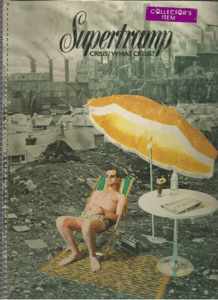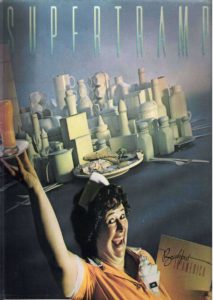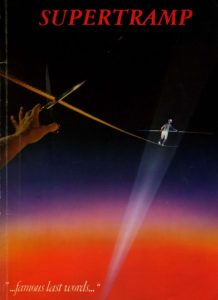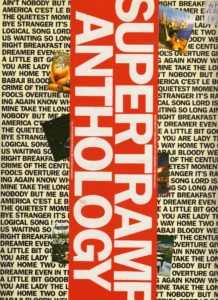Come join us now, and enjoy playing your beloved music and browse through great scores of every level and styles!
Can’t find the songbook you’re looking for? Please, email us at: sheetmusiclibrarypdf@gmail.com We’d like to help you!
Table of Contents
Supertramp Fool’s Overture, Piano Vocal sheet music, Noten, partitura, spartiti, partition, 楽譜

Search your favorite sheet music in the Sheet Music Catalog

Please, subscribe to our Sheet Music Library.
If you are already a subscriber, please, check our NEW SCORES’ page every month for new sheet music. THANK YOU!
The Breakfast in America Legacy: Revisiting the Artful Pop of Supertramp
In the vast and diverse landscape of 1970s rock, few bands carved out a niche as distinctive and enduring as Supertramp. They were a band of contradictions: progressive in their musical ambition yet wildly successful in the pop world; capable of crafting a soaring, feel-good saxophone hook that could also underscore lyrics of profound alienation and urban despair. Supertramp was the sound of intellectual angst dressed in a three-piece suit, a blend of art-rock complexity and pop perfection that has captivated audiences for decades.

Browse in the Library:
Or browse in the categories menus & download the Library Catalog PDF:
The Dutch Millionaire and the Humble Beginnings
The Supertramp story begins not in a garage, but with a wealthy benefactor. In 1969, Dutch millionaire Stanley Auguste “Sam” Miesegaes, disillusioned with the commercial failure of a band he was supporting, offered a young musician named Rick Davies a chance to form his own group. Davies, a talented keyboardist and vocalist with a soulful, bluesy rasp, placed an ad in the now-legendary British music paper Melody Maker: “Looking for gifted young keyboards and bass player, must have flair and enthusiasm. Write, call or come.”
The initial lineup coalesced around Davies and included guitarist and vocalist Roger Hodgson, whose clear, soaring tenor would become one of the band’s most defining sounds. This early incarnation, heavily influenced by the nascent progressive rock movement, released their first two albums—Supertramp (1970) and Indelibly Stamped (1971). While artistically interesting, they were commercial failures, and the band underwent a near-total collapse, with only Rick Davies remaining from the original members.
The Classic Lineup and the Breakthrough
Undeterred, Davies and Hodgson rebuilt Supertramp in 1973, assembling the “classic” lineup that would define their golden era. This included the rhythmically impeccable rhythm section of bassist Dougie Thomson and drummer Bob Siebenberg, and the extraordinarily melodic saxophonist and woodwind player John Helliwell.
This new lineup marked a sonic shift. They began to refine their sound, blending Davies’ blues and jazz-inflected rock with Hodgson’s more melodic, introspective, and sometimes whimsical songwriting. This evolution culminated in their third album, Crime of the Century (1974). It was a monumental critical and commercial success, a concept album of sorts that explored themes of mental instability and societal pressure. Tracks like the anthemic “Dreamer,” the haunting “School,” and the epic “Crime of the Century” announced Supertramp as a major force. The album’s success was built on a foundation of intricate arrangements, masterful dynamics, and the unique, complementary vocal interplay between Davies’ gravel and Hodgson’s crystal-clear purity.

They solidified their status with the ambitious Crisis? What Crisis? (1975) and the live album Paris (1980), but it was the one-two punch of Even in the Quietest Moments… (1977) and Breakfast in America (1979) that cemented their superstardom.

The Pinnacle of Success: Art Meets Pop
Even in the Quietest Moments… gave the world “Give a Little Bit,” a timeless folk-pop anthem of generosity that remains a radio staple. But it was Breakfast in America that became a cultural phenomenon. The album was a masterclass in sophisticated pop song craft, wrapped in a clever, satirical package about an Englishman’s view of the American Dream.
The songs were irresistible: “The Logical Song,” a blistering critique of education and lost innocence, became a global hit; “Take the Long Way Home,” a poignant reflection on loneliness; and the title track, “Breakfast in America,” a witty, piano-driven romp. The album was a staggering success, selling over 20 million copies worldwide and winning two Grammy Awards. It represented the perfect fusion of the band’s art-rock roots with flawless pop sensibility.
The Duality and the Divide
At the heart of Supertramp’s most celebrated work was the songwriting partnership of Rick Davies and Roger Hodgson. Their creative duality was their greatest strength. Davies’ songs (“Bloody Well Right,” “Goodbye Stranger,” “From Now On”) were often more grounded, rhythmic, and steeped in blues and jazz. Hodgson’s (“Dreamer,” “The Logical Song,” “Give a Little Bit,” “Fool’s Overture”) tended to be more spiritual, melodic, and orchestral.
This creative tension, however, eventually led to the band’s fracture. After the exhaustive Famous Last Words tour in 1983, Roger Hodgson left the band to pursue a solo career and spend more time with his family. His departure marked the end of an era. The magic of Supertramp had always been in the push-and-pull between his uplifting melodies and Davies’ world-weary realism.
The Legacy: More Than Just a ’70s Band
Supertramp continued with Rick Davies at the helm, releasing several albums and touring successfully into the 21st century, but they never quite recaptured the commercial and artistic peak of the Hodgson era. Roger Hodgson also embarked on a successful solo career, faithfully performing his Supertramp classics to adoring fans around the world.
Despite the split, their legacy is untarnished. Supertramp’s music possesses a rare timelessness. Their songs are meticulously crafted, layered with intelligent lyrics and complex musical ideas that never sacrifice immediate appeal. The wistful saxophone solo in “The Logical Song,” the driving Wurlitzer electric piano in “Goodbye Stranger,” and the sheer ambition of a suite like “Fool’s Overture” continue to resonate.
They were a band that proved intellectual rock could be massively popular, that a song could be both a thoughtful commentary and a sing-along anthem. In a world that often feels increasingly fragmented and illogical, the music of Supertramp—with its blend of hope, despair, and unwavering musical excellence—remains a comforting, thought-provoking, and utterly unique soundtrack.
Browse in the Library:
Or browse in the categories menus & download the Library Catalog PDF:
